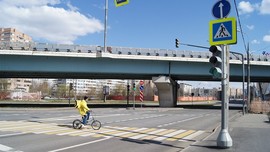On January 24, the Italian Supreme Court («Corte di Cassazione») found in favour of some food-delivery riders litigating against their platform. The Court decided to apply a 2015 legislation that extends employment and labour protection to all workers whose work is organized by someone else, which in Italy is called lavoro etero-organizzato. The law aimed at extending protection beyond the traditional scope of the employment relationship, lavoro subordinato in Italian. The 2015 legislation was included in a reform package commonly known as the «Jobs Act». This reform package was profoundly controversial as it also loosened dismissal protection for new hiring. This part of the law became much better known, in the public debate, than the part on protecting lavoro etero-organizzato.
The whole litigation has been rather complicated. It also was extremely quick spanning for not even three years from the first instance to the third and final one, a record speed for Italian civil justice.
The Tribunal of Turin, which decided in the first instance, had found that there was no employment relationship between the workers and the platform, because there was no subordination as the riders were free to decide their own time schedules. Freedom to choose work shifts and to refuse jobs is commonly regarded as incompatible with employment status in Italy. Nonetheless, some judgments from the Supreme Court had found that even workers who are able to set their own schedules could be regarded as employees if other elements pointing to control and subordination of the workers exist (e.g. a fixed remuneration, receiving strict instructions about the work performance, etc.). These judgements were disregarded by the Tribunal, which adopted a very strict notion of employment status. It is essential to bear in mind that Supreme Court judgements are only authoritative but not legally binding for lower courts in Italy.
The Tribunal, to the surprise of most commentators, also decided that the 2015 legislation could not be applied, as the lawmakers had allegedly not drafted the law correctly. This decision stirred a vast debate among labour scholars; the vast majority of them rejected it as untenable.
The Court of Appeal, which ruled over the case in second instance, confirmed that there was no subordination, but quashed the rest of the judgment. The riders would be protected by the 2015 legislation, so employment and labour protection would apply to them anyway. However, the Court also decided that judges could cherry-pick the protection to be applied with no need to extend all labour protection to the workers. In the case at hand, they only applied occupational health and safety and wages (and related) rules.
This decision also was controversial. Beyond, again, adopting a very conservative notion of employment, the possibility of judges to cherry-pick protection was unprecedented in Italian labour legislation and did not adequately reflect the lawmakers’ intentions. The law, in fact, allows for a selection of the protection to be applied to lavoratori etero-organizzati to be made. Nonetheless, the law only identifies social dialogue and collective bargaining as the actors of this selection. Allowing courts to determine what protection to apply on a case-by-case basis would fragment protection and make the law unpredictable to workers and firms.
In 2019, the 2015 law was partially reformed. Its scope was partially extended, and it was explicitly specified that also workers of digital labour platforms are included in its scope if their work is organized by the platform.
The new law did not apply to the case at hand, as it was passed after the case occurred. However, on January 24, the Supreme Court issued their final judgment giving a far-reaching interpretation of the 2015 rules. The Supreme Court decided that the 2015 legislation is perfectly valid and operative. It also applies to platform workers and courts cannot cherry-pick over protection. All employment and labour legislation applies to workers whose work is organised by the other party (lavoratori etero-organizzati). It does not matter whether these workers are in an employment relationship or self-employed. Everyone who is etero-organizzato should be protected by all labour and employment protection, unless a collective agreement says otherwise. This concrete and straight-to-the point legislative approach reflects the view of the law’s drafter, Maurizio Del Conte, a professor of labour law at Bocconi University, Milan, whose scholarship has always been more interested in realistic and concrete protection of vulnerable workers rather than in theoretical disputes over statuses.
The new Italian law was approved in November 2019 and can be listed among the very few legislative initiatives addressing platform workers directly. It introduces two main legal regimes. The first one covers «workers whose personal performance is organized by the client even by means of digital platforms», while the second defines a set of labour protection for «self-employed couriers delivering goods by means of two-wheelers vehicles in urban areas» (a rather specific category).
The first section of the recently passed law, thus, includes all workers whose performance is organized by the client even through a platform: employment protection shall apply to this group of «technically dependent» self-employed workers in any economic sector. The wording seems indeed conceived in order to provide a clear-cut guidance for judges and practitioners. Unusual as it may sound, this approach is in line with an «interventionist» tradition of the Italian legislator.
The second section covers only «self-employed riders»: namely those who do not fall within the scope of the first section, a rather residual group, no doubt. It lays down a mandatory written form for contracts. Social partners are expected to reach an agreement detailing remuneration levels within one year of the date of entry into force of this law. In the absence of such collectively-negotiated schemes, wages are to be defined in accordance with the minimum standard in national collective bargaining agreements for similar sectors. Notably, piece-rate «per-drop payments» are prohibited. In addition, a supplementary indemnity for work performed by riders over nights, public holidays or in adverse weather conditions, and mandatory insurance coverage against work accidents and occupational diseases are established. The law includes provisions regarding mandatory insurance schemes, data protection and anti-discrimination.
It is not easy to foresee what the consequences of the Supreme Court judgment are. Firstly, the platform in question – Foodora – does not operate in Italy anymore. Moreover, as already said, Italian higher courts’ ruling, even Supreme Court’s ones, do not necessarily bind lower courts. This is not to say, of course, that this Supreme Court’s judgment is irrelevant.
What is likely to occur is that other platforms, also because of the new legislation adopted in 2019, will be incentivised to negotiate collective bargaining agreements to avoid a bulk application of employment and labour law to their businesses. The 2015 legislation allows for collective agreement to set protective measures and rules in lieu of legal protection. So far, platforms had been extremely reluctant to start negotiations with unions, but this precedent could lead them to the table. It will be important, in that case, for unions to adequately involve platform workers in these negotiations. Many platform workers are not union members or sometimes prefer to engage in grass-roots organising. It will be challenging to represent them adequately. Nonetheless, it is most likely the best option to ensure adequate standards for platform workers in Italy.

Riproduzione riservata




